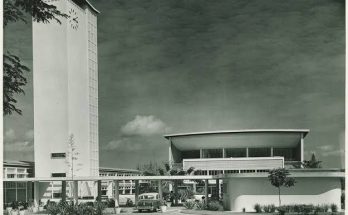When the University of Ibadan announced her physical resumption to conclude the first semester and for students to take the first semester’s examinations, many students were filled with happiness. The happiness had its meaning visibly written on the students’ faces. This does not mean the first semester was perfect. The trials and errors in ensuring a smooth virtual learning took a toll on the students who complained vehemently. Now this semester is going virtual again: can similar mistakes that characterized the first semester be avoided?
The reason for the University embracing virtual learning (with its flaws) for the second time is to curtail the new surge of the COVID-19 which reportedly has found its way on campus. Some Faculties have gone ahead with this mode of learning to the apparent awe of some students. The reality has hit us. This not the time to ponder on the effectiveness of this teaching method. And as a wake-up call, dear students, welcome back to the virtual world.
It is no longer news that the world is experiencing the third wave of Covid-19 with a huge increase in the number of reported cases in Nigeria. Recently, the University of Ibadan announced the death of one of her members to the Covid-19 virus and also that some students have contracted the virus. The only way forward to this health mess is go avoid multiple outbreak on campus, and go virtual.
As it has been said often times, the University does not have the adequate means for a seamless second semester. The slow learning that was experienced last semester is still with the students. And there is no confirmation that the University has looked into the technical issues that affected virtual learning last semester in a bid to correct the anomaly. Thus, to prevent another case of pedagogical failure, it is important to know the school’s well-structured in running a virtual second semester. Put simply, the data plans for the students, the technical knowledge of lecturers and all other plans to ensure a smoot learning.
Looking at the first semester and the “can-you-hear-me?” challenges, it became evident that some of our lecturers are not technologically inclined. This affected their mode of teaching as most of them just read out the materials through screen sharing rather than laying the foundations to every topic and making learning on Zoom and other similar platforms interesting. Also, poor network connection jeopardized learning as the students could not hear all that their lecturers said and many were frequently logged out of classes. For the asynchronous sessions, only our data and time were wasted and much knowledge was not added.
For the faculties who have commenced virtual classes, there are reports that nothing “technical” has changed. It’s also business as usual just as we had in the first semester. Many students are left frustrated as lecturers just rush through each topic and heap many learning materials on the students. This has however become a cause of concern for those who are finding it difficult to move the unpleasant pace.
In the light of the above, this editorial serves as an open appeal to the University Management to ensure the virtual flaws that accompanied last semester do not repeat itself. The past should be reflected upon, with the aim of getting at the best. Students should derive maximum satisfaction from learning, at least in the University of Ibadan.
In conclusion, students should expect brace up for the new-normal. Enough of complaints. Enough of blame games. The students should be ready to adopt and adapt. However, it is the university that has the bigger role to play in ensuring a smooth learning experience. “Once beaten, twice shy.” Previous mistakes should be avoided because if it from UI, it must be, as of utmost necessity be of outstanding quality.
Thanks for listening.




